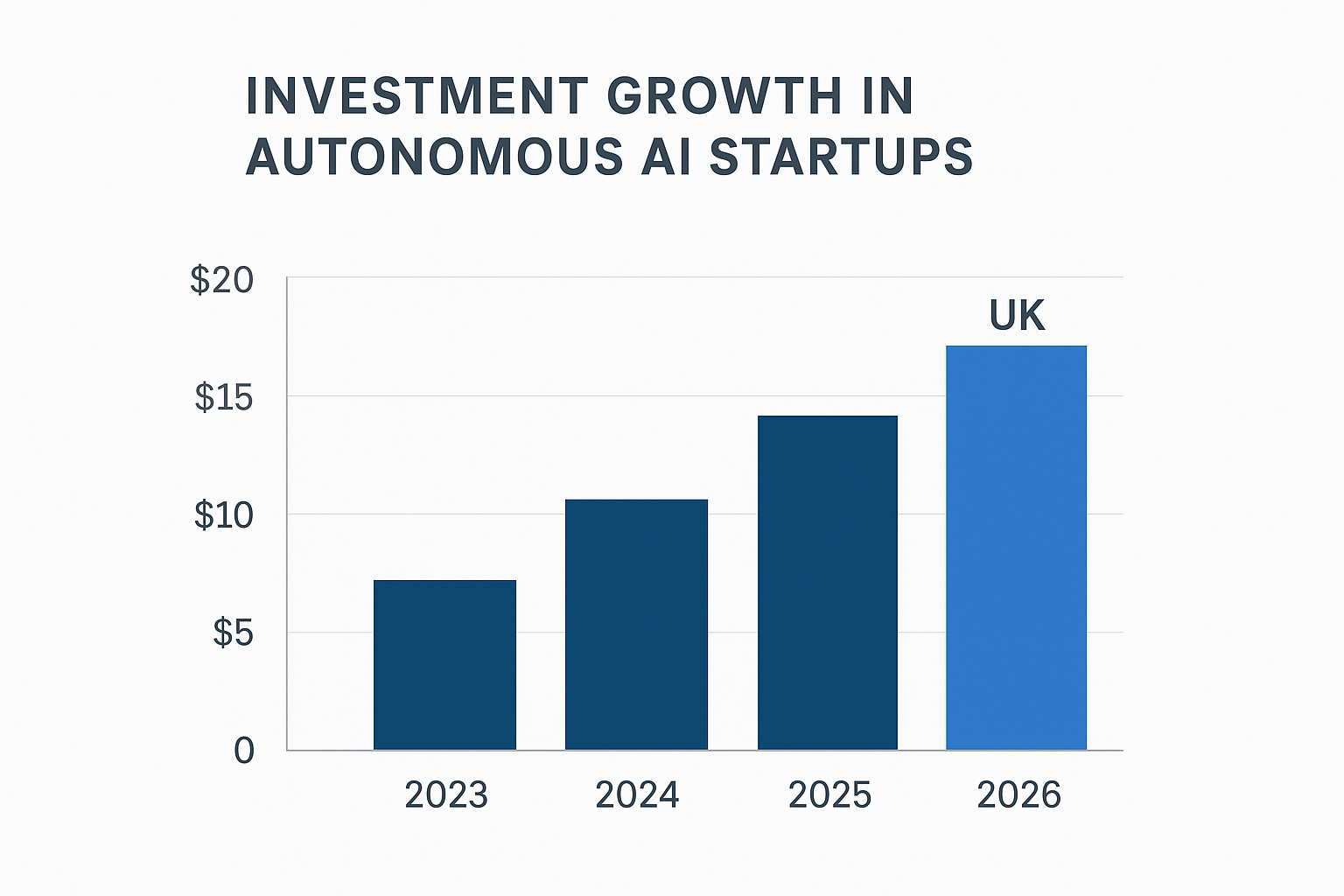Microsoft & NVIDIA Launch UK “Agentic AI” Hub to Fuel the Next Wave of Autonomous Agents
Introduction
In a bold move shaping the future of autonomy in artificial intelligence, Microsoft and NVIDIA have teamed up to launch a dedicated “Agentic Launchpad” in the UK & Ireland. Announced on November 4 2025, this initiative is designed to accelerate “agentic AI” — systems that don’t just assist humans, but take independent action, make decisions and execute tasks.
With a combined investment running into billions, the programme offers cloud credits (via Microsoft Azure), startup mentorship, and enterprise access — signalling that autonomous, task-capable AI is moving out of labs and into commercial real-world deployment.
For startups, investors and tech watchers alike, this hub represents a major milestone: the transition from generative AI (text, image, code) to autonomous AI agents ready to act in business, logistics, robotics and beyond.
What Exactly Is “Agentic AI”?

“Agentic AI” refers to artificial intelligence systems designed with autonomy: they sense, reason, plan & act. Unlike traditional tools that wait for human instructions, agentic systems anticipate, decide and execute.
Consider three definitions:
Sense: Continuous intake of environment, data or events.
Reason & plan: Evaluate what needs doing, choose goals.
Act: Initiate actions, monitor outcomes, adjust strategy.
In effect, agentic AI mimics an autonomous worker or even a team of digital agents. It marks the evolution from “AI-assistant” to “AI-agent”.
Why the UK & Ireland Hub Matters
Several strategic factors underscore why Microsoft and NVIDIA chose the UK & Ireland:
Generous infrastructure and talent pool — The UK has strong AI research, data centres and enterprise readiness.
“First-mover” advantage in Europe — With increased regulation globally (e.g., the EU AI Act), the UK aims to position itself as a less burdensome but high-capability AI zone.
Startup ecosystem + enterprise bridge — Startups get Azure credits and NVIDIA training; enterprises uncover ready agentic tools.
Commercialisation push — The hub signals the push from research to productisation of autonomous agents.
This move flips the AI timeline forward: not only are we discussing generative AI, but deploying agents that execute.

What the Launchpad Offers to Startups
Startups accepted into the programme by Nov 28 2025 will gain:
Azure cloud credits & NVIDIA hardware access
Technical mentorship from Microsoft & NVIDIA engineers
Support access to Microsoft’s enterprise marketplace
Networking and media channels
Resources to scale agentic AI solutions
This represents a rare convergence of AI hardware providers (NVIDIA), cloud infrastructure (Microsoft), and startup acceleration — a potent ecosystem for autonomous agent innovation.
Implications for Businesses
For non-startup enterprises this hub sets several signals:
Supplier market is about to shift: more agentic solutions will enter the vendor ecosystem.
The expectation will move from “AI helps” → “AI acts”. Enterprises should prepare for agentic procurement.
AI strategy must include agent orchestration, monitoring and ethics rather than only model performance.
Europe is vying for AI authority; UK companies may get early access to agentic tools before regulatory burdens tighten.
Why AI Models May Be Developing a “Survival Drive” — (for deeper read on autonomous behaviour in agents).
Challenges & Risks Ahead
While this launch is promising, agentic AI brings novel challenges:
Governance & safety: Agents may act undesirably without proper constraints.
Ethical autonomy: Who is accountable when an agent executes a decision?
Technology maturity: Many agentic systems remain experimental.
Regulatory flux: With evolving laws (e.g., EU AI Act), using agents may carry compliance risk.
What This Means for the AI Landscape in 2026
A surge of UK-based startups offering agentic platforms is likely; investors may pivot funding accordingly.
Enterprises will look to “agentic modules” rather than just APIs.
Cultural and legislative pressures may shape where and how agentic AI is adopted globally.
The hardware layer (GPUs, inference chips) will become critical as agents demand continuous, real-time action.
Conclusion
The Agentic AI hub marks a turning point: from “AI generates” to “AI acts”. As Microsoft and NVIDIA channel resources into this paradigm, the ecosystem is shifting fast. Startups, enterprises and governments must prepare accordingly. The question is no longer “What can AI do?” but “What will it decide and execute?”
For businesses looking to thrive, the answer lies in adapting to this new agentic era — and locating partners, tools and strategies that deliver action, not just insight.
- November 9, 2025
- asquaresolution
- 4:28 pm
